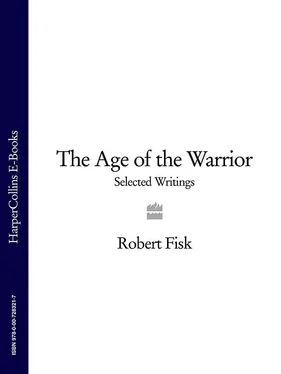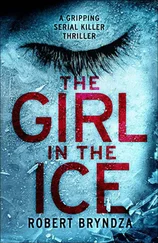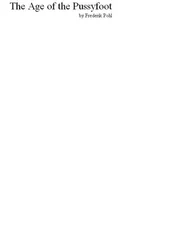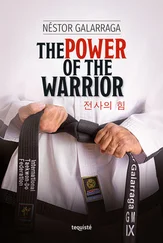I asked about the Middle East. Did Harland think that perhaps our ‘training’ had caused us to fail when we journalists were faced not with local government disputes or coroners’ courts but with a great historical tragedy? ‘I’ve never covered a story that was a great tragedy like the Middle East,’ he said. ‘I can see the problem, yes. How do you make the journalism here stretch to the journalism there?’ He had made the point precisely.
For out in the Middle East, more and more journalists, each with their local reporting experience, their ‘training’, their journalism schools – the American version even more banal than the English ones – are using clichés and tired adjectives to obscure reality. Turn on your television tonight or read tomorrow’s agency reports and we are told of the ‘cycle of violence’ – no side taken there – of ‘clashes’ (in which the identities of victim and killer are obscured) or of ‘the fears of Israeli security chiefs’. Note how the word ‘security’ is always linked to the word ‘Israel’. And how ‘chiefs’ has made the grade from Blyth to Palestine. And just as the police chief in Blyth would tip us off on a story, so Israelis – to a much lesser extent Palestinians – tip us off on stories. No one wants to rock the boat, to be controversial. Why write about the Blyth staithes if we’re going to carry a Coal Board denial? Why write about the outrageous nature of Israel’s killing of stone-throwing children if we’re going to get outraged letters to the editor?
Much better to stick to clichés. Arab ‘terrorists’ threaten Israel. Israeli ‘security chiefs’ warn Arafat. Can Arafat ‘control’ his own people, we asked when the Israelis asked the same question. Yet when a Jewish settlers’ group killed two Palestinian civilian men and a baby, we did not ask if Sharon could control his own people. Since the Palestinians had not asked that question, we did not ask it. We were silent that time round. Over five days in the North-east and on the long drive back to London, I listened to the radio news. Two Israelis had been killed by a Palestinian suicide bomber at Binyamina. The Israelis ‘struck back’ at the Palestinians, killing four guerrillas in a ‘targeted’ killing. ‘Targeted’ was Israel’s word. In other words, death squads. But that wasn’t what the BBC said. When the Israeli settlers murdered the three Palestinians – including the baby – the Israeli police were reported as ‘narrowing their search’ for the killers.
Never the why. Only the what. We reported the closure of Blyth’s mines. But we rarely asked why the mines had to die. We watched Blyth decay. We reported its death. In my cub reporter days, we watched its last moments as a coal-and-ship city. But we didn’t scratch the black, caked soot off the walls of Newcastle and ask why Britain’s prime ministers allowed the centre of the Industrial Revolution to go to the grave. Harland agreed that there was a culture of ‘accepting’ authority. We didn’t challenge the police or the council – or the social services. They may not have been our friends. But we needed them. We respected them, in an odd sort of way. They were the ‘chiefs’, the ‘bosses’. And now we rarely challenge friendly governments. We can (and should) attack Arafat’s corrupt dictatorship in Palestine. But Israeli wrongdoing has to be ‘balanced’ with quotations from Israel’s ‘security chiefs’. The off-the-record briefing from the council clerk or the police chief has become the off-the-record briefing from the Foreign Office. Look how we responded to Nato’s wartime Kosovo briefings. How we accepted. How we parroted the words.
I’m glad the Chron exists. It was good to me. So was Big Jim Harland. He made me understand the need for accuracy. ‘Say what you like later,’ he once told me. ‘But for Christ’s sake, get it right.’ But our conversation this month left me with much to think about. What was it he said to me before lunch? ‘If we’d said what we thought, well, we’d have called that bias.’ And no doubt one day, we’ll find those reporters who so blithely accepted Nato’s briefings and Israel’s line on the Palestinians ‘revealing’ the truth. Like the rotten borough and the crooked cop and the sinister abuse of children in Blyth, they’ll all one day be ready to tell us what they really knew. Only it will be a bit late to make any difference.
The Independent Magazine , 4 August 2001
We should have listened to Bin Laden
I belong to that generation of undergraduates who cut their teeth on linguistics. Lancaster University in its second year of existence – Class of ’67, if I’m not mistaken – was as innovative as it was a bit odd. ‘Digs’ were on the Morecambe seafront, lectures in a converted chapel, and tutorials in an old linen factory. But the books we studied invariably included the immensely boring Zelig Harris and the stunningly brilliant Noam Chomsky.
Less famous then than now, he it was who introduced me to the ‘foregrounded element’. ‘Foregrounded’ is when someone places words in such an order that a new meaning is attached to them or deliberately leaves out a word that we might expect. The big bad man emphasises the meanness of the man. But the bad big man makes us think of size. ‘Big’ has been ‘foregrounded’. Real linguists won’t like the above definition but journalists, I fear, sometimes have to distort in order to make plain. Presidents too, it seems. Because I did a little linguistic analysis on George W. Bush’s Fort Bragg address to Americans on 28 June – and came up with some pretty strange results. First, of course, was his use of the words ‘terrorism’ and ‘terror’ thirty-three times. More interesting was the way in which he deployed these massed ranks of terrorists. If you divided his speech up into eight parts, ‘terrorists’ or ‘terror’ popped up eight times in the first, eight times in the second, three times in the third, nine in the fourth, two in the fifth, none at all in the sixth, a measly three in the seventh and again none at all in the eighth.
The columns in which ‘terror’ disappeared were full of different clichés. Challenge, a good constitution (an Iraqi one, of course), a chance to vote, a free society, certain truths (I won’t insult you by telling you where that was snitched from), defending our freedom, flying the flag, great turning points in the story of freedom, prevail (one of Churchill’s favourite words) and no higher call. Put through Chomsky’s machine, Bush’s speech begins by frightening the audience to death with terrorism and finishes triumphantly by rousing them to patriotic confidence in their country’s future victory. It wasn’t actually a speech at all. It was a movie script, a screenplay. The bad guys are really bad but they’re going to get their comeuppance because the good guys are going to win.
Other elements of the Bush speech were, of course, woefully dishonest. It’s a bit much for Bush to claim that ‘terrorists’ want to ‘topple governments’ when the only guys who’ve been doing that – in Afghanistan and Iraq – were, ahem, ahem, the Americans. There are plenty of references to the evil nature of ‘the enemy’ – tyranny and oppression, remnants, the old order – and a weird new version of the Iraqi–11 September lie. Instead of Saddam’s non-existent alliance with al-Qaeda, we now have the claim from Bush that the Iraqi ‘terrorists who kill innocent men, women and children on the streets of Baghdad are followers of the same murderous ideology that took the lives of our citizens’ on 11 September 2001. Whoops! It’s no longer the Saddam regime that was involved in these attacks, it seems; it’s now the post-Saddam insurgents who are part of the same gang.
Читать дальше












